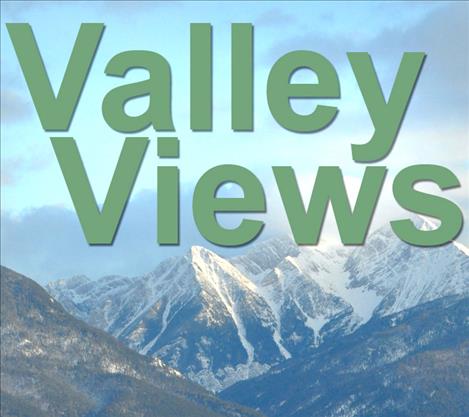Claims regarding Bison Range are incorrect
Hey savvy news reader! Thanks for choosing local.
You are now reading
1 of 3 free articles.
As a resident and taxpayer of Lake County and a member of the Confederated Salish and Kootenai Tribes, I appreciate the Lake County Commission’s interest in the National Bison Range and the ongoing dialogue between Lake County and Tribal leadership on that issue. However, I was disappointed by the some of the information conveyed in Lake County Commissioner Gale Decker’s guest column, in the June 22 Valley Journal, regarding the Tribes’ draft National Bison Range restoration legislation. I think it is important to correct some of the claims made by Mr. Decker so that the public is not left confused.
Mr. Decker stated that Lake County received $37,218 from the Interior Department (U.S. Fish & Wildlife Service) in fiscal year 2014 “in lieu of property taxes on NBR lands.” This is incorrect. Only $10,014 of the FY ’14 money that FWS paid to Lake County was attributable to the National Bison Range; the remainder of the $37,218 payment was connected to other FWS-owned lands and would remain unaffected by the Tribes’ NBR restoration legislation.
The Tribes have attempted to reduce the impact on Lake County from Bison Range restoration by preventing an immediate end to the FWS payments that are linked to the NBR. Our draft legislation provides for continued federal revenue to Lake and Sanders Counties for five years after the land is restored to federal trust ownership for the Tribes. We have also proposed to the County an alternate arrangement wherein the Tribes would simply continue to make payments to the County in an amount equivalent to what it currently gets (revisiting the payment amount on a periodic basis to ensure fairness to both parties). This good faith effort to work with the County exists against a backdrop where the Interior Department has proposed, in its FY 2017 proposed budget, to eliminate much of these National Wildlife Refuge Fund payments altogether. As FWS states in its proposed budget for FY 2017: “continued provision of discretionary funds for this purpose is an unwise use of taxpayer dollars.” Given this federal budget request, the Tribes’ offer would provide more budget certainty than the County currently faces.
In his column, Mr. Decker asks why the draft legislation does not address what he claimed to be the $26 million that the United States paid to the Tribes, as part of a 1971 federal Court of Claims decision, “for creation of the NBR.” Here are the facts about that court opinion, which was a judicial decision and not a “settlement agreement” (as described by Mr. Decker):
— The court held that the original federal acquisition or conveyance of many Reservation properties, including the Bison Range, was an unconstitutional taking for which the Tribes had not been given fair market value;
— The court awarded the Tribes $6,066,669, plus interest, as just compensation, for all of the lands involved;
— Only a small portion of that award (less than $300,000) was attributable to the National Bison Range – the rest was awarded for unconstitutional takings of other lands within the Reservation.
Mr. Decker said that the draft legislation does not address management of the three other refuges that are currently contained in the National Bison Range Complex. While he cited the Swan River Refuge as being one of those three refuges, the Swan River Refuge’s website states that it is managed as part of the Benton Lake National Wildlife Refuge Complex, not the National Bison Range Complex. The Ninepipe, Pablo and Lost Trail Refuges that are currently part of the NBR Complex would continue their status as Refuges, and would continue to be managed much as they are currently. In other words, they would not be substantially affected by the Bison Range restoration.
Mr. Decker says that the Tribes should repay the United States for the land under the proposed restoration. Aside from considerations of justice, such a claim overlooks the fact that, by assuming responsibility for the Bison Range, the Tribes would be saving American taxpayers an amount of at least $750,000- $1,000,000 annually, while continuing to provide citizens with access and conservation benefits that would be required by statute.
The Tribes will continue to engage the Counties on this historic opportunity for Bison Range restoration. However, it is to everyone’s benefit for us to ensure that the public has accurate facts. To this end, we encourage people to review the draft legislation at www. bisonrangeworkinggroup.org.
















